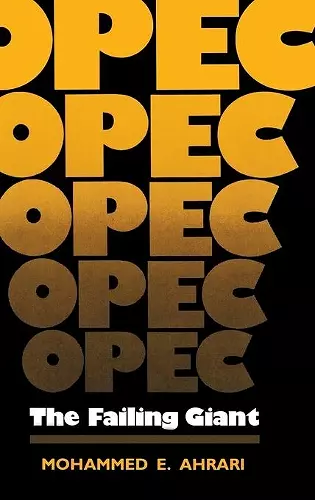OPEC
The Failing Giant
Format:Hardback
Publisher:The University Press of Kentucky
Published:11th Feb '86
Currently unavailable, and unfortunately no date known when it will be back

A glut of oil, dropping prices, the threat of insolvency, a divided membership -- these developments in the early weeks of 1985 underline the cogency of Mohammed Ahrari's historical study of the OPEC oil cartel and his argument that economic forces, not politics, determine OPEC's action in the world arena.
The impetus for the formation of OPEC in 1960 was the desire of the oil-producing states for greater income from their most valuable resource. The international oil corporations had secured lucrative concessions early in this century, and in the 1960s they still dictated both the terms of production and the prices paid the oil states.
In the buyers' market of the 1960s, the organization found itself with little economic clout. But in the early 1970s, OPEC members succeeded not only in manipulating the price of crude oil but in reducing the status of the oil corporations to that of mere managers of upstream operations. In addition, they accumulated enormous numbers of petrodollars by exploiting increasingly tight markets in the aftermath of the oil embargo of 1973 and the Iranian revolution in 1979.
The effects of OPEC policies on the consuming countries have been skyrocketing inflation and sustained recession, with profound political repercussions. But the OPEC members have found their apparent power an uncertain blessing, as Mr. Ahrari demonstrates. Their failure to develop pricing formulas sensitive to fluctuations in the international oil market have made them highly vulnerable. In addition, the political tensions emanating from the Iran-Iraq war and from the specter of repetition of Iranian-style revolution elsewhere in the Persian Gulf have made OPEC's continued viability highly uncertain.
ISBN: 9780813115528
Dimensions: unknown
Weight: unknown
272 pages